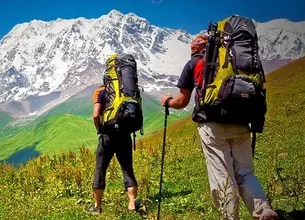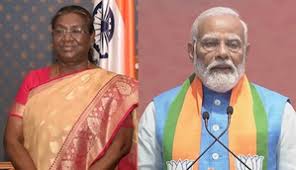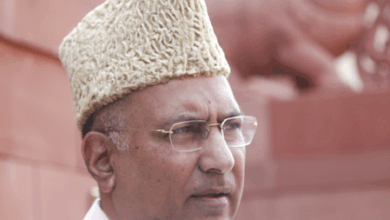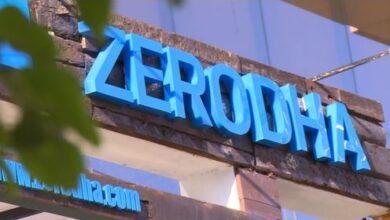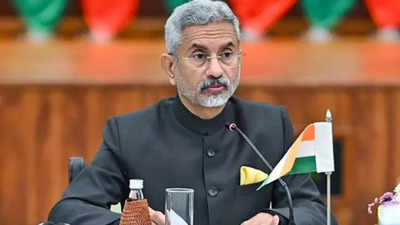Progress in India-EU FTA negotiations, formal talks to begin this month: EAM
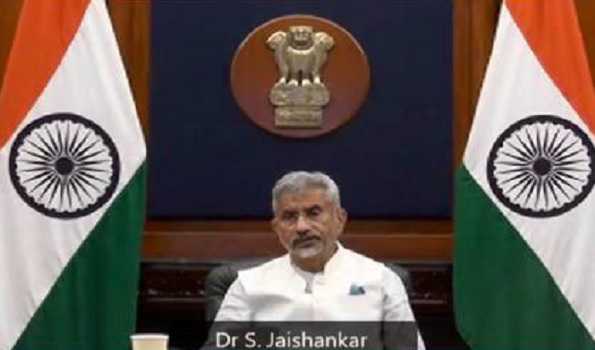
New Delhi : The landmark India-EU 27 Leaders’ Summit in May this year led to resumption of the stalled Free Trade Agreement negotiations, with progress having been made over the past months, and formal talks are to begin this month, External Affairs Minister S. Jaishankar said.
In his remarks on Wednesday at the annual meeting of Romanian diplomacy, Jaishankar said that one of the important outcomes of the landmark summit this May between Prime Minister Narendra Modi and the EU 27 leaders was the resumption of the FTA negotiations that were stalled from 2013 from the time of the previous government. “Not just that there has been already some progress in that regard, and actually the formal talks start this month,” he said.
He said India and the EU have also agreed to conclude early an investment agreement, and one on geographical indicators. “The India-EU connectivity partnership is also important for its bilateral implications, its quality connotations and its third country possibilities,” he added.
The negotiations over the FTA had collapsed in 2013 after 16 rounds of talks due to disagreement over various issues.
Besides the resumption of FTA talks, at the May summit India and the EU had also decided to launch negotiations for a stand-alone investment protection agreement and an agreement on geographical indications. Another key outcome was the EU-India Connectivity Partnership. The document stressed on the promotion of “transparent, viable, inclusive, sustainable, comprehensive, and rules-based approach to connectivity.”
Jaishankar said it is important to appreciate that Romania would benefit significantly from the expansion of India’s cooperation with the European Union.
“The strategic convergence between India and the EU is reflected in our positions on key regional and global issues, including I must add, on Afghanistan and the Indo-Pacific,” he said and added, that between their national and EU engagements ”there is every reason to be optimistic about our continued cooperation”.
“One reason why it is essential from the Romanian perspective is the likelihood that India will play a more visible role in global politics in the days to come. India’s economic weight has already grown substantially, as indeed has its political influence”, he said, and pointed out that India is a member of the G20, a non-permanent member of the Security Council, of the EAS, BRICS, SCO, QUAD, SAARC, BIMSTEC and IORA .
“So there’s a long list out there,” he said, adding that the government’s Neighbourhood- first policy has strengthened connectivity, contacts, and commerce. “India’s growth is a tide lifting the larger region in the quest for prosperity.”
India’s ‘Act East’ policy has added security, connectivity in greater societal context to a robust economic partnership. “This has now further developed into what has become known as an Indo-Pacific Vision that contemplates opportunities much more seamlessly.”
“To the west, a link-West outlook has actually transformed our ties with the Gulf States and fashioned a strategic construct that goes beyond energy, trade and the diaspora. To the South, the ‘SAGAR Maritime initiative’ has taken an integrated view of cooperation with various islands, and littoral states, with Africa an ambitious, development partnership and a larger footprint,” he said, adding that all the new embassies opened by India in Africa have given the traditional relationship a new scale.
“India’s engagement today, extends through established mechanisms from the Pacific Islands on our East, to the Caribbean on our West. Now these developments may pertain to specific regions and theaters, but together they connote something much larger for the international order. The re-emergence of a civilizational state like India drives the rebalancing of world affairs in a significant manner,” he noted.
“Obviously that phenomenon has other aspects such as the rise of China, the growth of ASEAN etc., but this rebalancing is today sufficiently advanced to create a more multipolar global architecture,” Jaishankar added.
He said the Covid-19 pandemic has clearly made all nations of the world much more aware of external risks and vulnerabilities. “An issue that has emerged strongly on the global agenda, is the requirement for resilient and reliable supply chains. Some of this is an objective demand summarized from the behavior of States. But together there is a wider appreciation today of the importance of global cooperation, particularly among states who share values and respect rules,” he said.
Jaishankar said that India and Romania “have a significant convergence in our outlook of the world and of its contemporary challenges. Our cooperation has a larger beneficial impact as well.”


